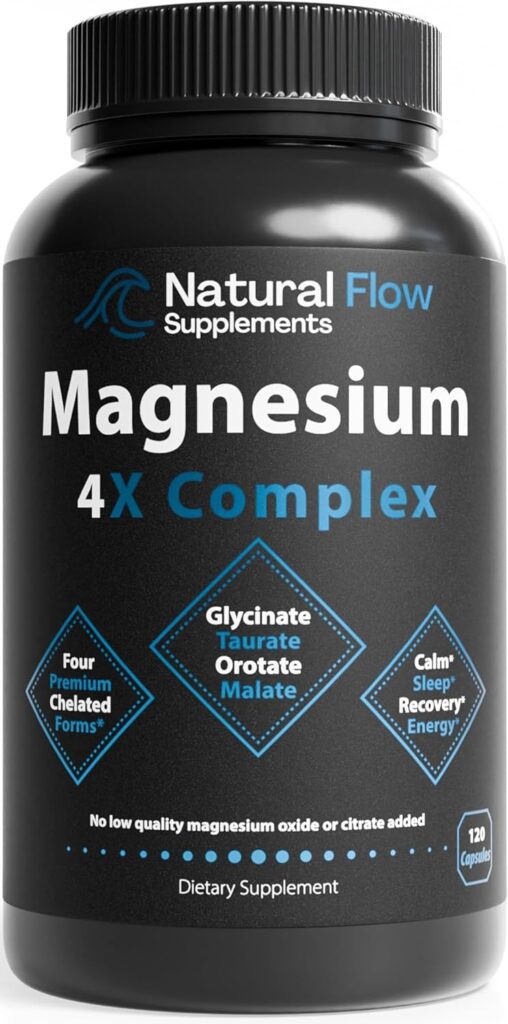Struggling to fall asleep can leave you feeling exhausted, irritable, and unfocused during the day.
Many people toss and turn at night, unable to quiet their minds or relax their bodies enough to drift off.
While occasional sleepless nights are normal, chronic difficulty falling asleep can affect overall health.
Fortunately, natural remedies and lifestyle strategies can help you fall asleep faster and enjoy deeper, more restorative sleep.
In this post, we will explore 5 ways to fall asleep fast, starting with why you might have trouble falling asleep.
Let’s dive in!
Why Do I Have Trouble Falling Asleep?
Difficulty falling asleep can stem from multiple factors.
Stress and anxiety often keep your mind active, while irregular sleep schedules, exposure to screens, caffeine consumption, and environmental disruptions can interfere with your body’s natural sleep signals.
Nutrient deficiencies, such as low magnesium levels, may also make it harder for your muscles and nervous system to relax, leaving you awake longer than desired.
5 Ways to Fall Asleep Fast
1. Magnesium Complex
Magnesium is a mineral that supports relaxation, nerve function, and healthy sleep cycles.
Calming the nervous system helps you fall asleep faster and stay in the deeper stages of sleep, including REM.
Magnesium glycinate and malate forms are particularly effective, as they support calmness and sleep quality in combination with each other.
Out of all of the magnesium supplements I’ve tried, Natural Flow’s 4x Magnesium is my personal favorite.
Natural Flow Magnesium is my go-to for falling asleep quickly.
Its premium blend of magnesium glycinate, taurinate, malate, and orotate is highly absorbable, gentle on the stomach, and helps calm the nervous system so you can fall asleep faster and stay in the restorative stages of sleep.
Just one serving supports relaxation, reduces nighttime restlessness, and helps you wake up feeling refreshed and ready for the day.
Simply take 2 capsules per day and you’re good to go!
2. Create a Consistent Bedtime Routine
Establishing a predictable nighttime routine signals to your body that it’s time to wind down.
Activities like reading, taking a warm bath, or practicing gentle stretches can help relax your mind and body, allowing you to fall asleep faster.
Consistency strengthens your circadian rhythm, making it easier to fall asleep at the same time each night.
3. Limit Exposure to Screens
The blue light emitted from phones, tablets, and computers can suppress melatonin production, delaying sleep onset.
Reducing screen time at least an hour before bed, or using blue light filters, helps your body prepare for natural sleep and supports faster, easier sleep onset.
4. Practice Relaxation Techniques
Deep breathing exercises, meditation, or progressive muscle relaxation can calm racing thoughts and relax tense muscles.
Spending just 10–15 minutes on these techniques before bed can significantly shorten the time it takes to fall asleep.
5. Optimize Your Sleep Environment
A dark, cool, and quiet bedroom helps your body recognize it’s time to sleep.
Consider blackout curtains, white noise machines, or adjusting the thermostat to create an environment that promotes comfort and relaxation, allowing you to fall asleep more quickly.
Falling Asleep Quicker
Falling asleep quickly is possible by combining natural remedies with smart bedtime habits.
Magnesium supplements, a consistent routine, reduced screen exposure, relaxation exercises, and an optimized sleep environment all work together to help you fall asleep faster and enjoy more restorative sleep.
By adopting these strategies, you can improve your sleep quality and wake up feeling refreshed and energized each morning.
Thank you for reading!
Affiliate Disclosure
Some of the links on this site are affiliate links. This means that if you click on the link and purchase the item, we may receive an affiliate commission at no extra cost to you. I only recommend products or services that I believe will add value to my readers, however, some (not all) do pay us to be on this blog. Your support and theirs help keep this blog running, and I genuinely appreciate it.
Medical Disclaimer
The information provided on this website is for educational purposes only and is not intended as medical advice. This blog or the writer is not a licensed healthcare professional, and the content should not be used as a substitute for professional medical diagnosis, treatment, or advice. Always consult with your physician or other qualified healthcare provider before starting any new treatment or making any changes to your healthcare routine.
